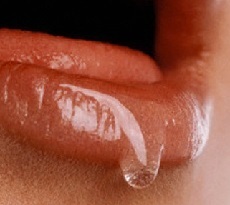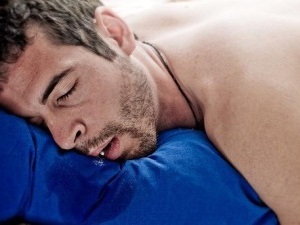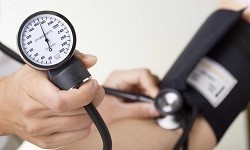 Perhaps there is no need to explain what the process of salivation involves. The oral cavity is filled with secretion produced by the salivary glands.
Perhaps there is no need to explain what the process of salivation involves. The oral cavity is filled with secretion produced by the salivary glands.
Reflex actions are not controlled by humans, but under the influence of various factors and due to certain body conditions, the amount of saliva released can greatly increase, which serves as a signal about malfunctions in the work of organs and vital systems.
Most people themselves notice that they have increased salivation. In medicine, this phenomenon is called hypersalivation. In a healthy person, the normal level of salivation is 2 mg for every 10 minutes. But when a person is sick, or his condition simply changes, salivation can either increase or decrease.
Causes of severe salivation
What does this mean? When the saliva is very abundant, that is, more than it can be enough, they say about the increased separation, or the so-called hypersalivation.
There are several factors, , that contribute to the development of this state of :
- use of certain drugs, a side effect of which may be increased salivation;
- disorder of metabolic processes;
- neurological diseases;
- acute poisoning or toxic infections;
- otorhinolaryngological pathology.
The causes of increased salivation in adults are usually associated with diseases of the digestive system and neurological disorders, and the causes of increased salivation in children - with acute respiratory viral infections and chronic diseases of the ENT organs( tonsillitis, adenoiditis, sinusitis, otitis media).Increased salivation in children up to a year is often the norm.
Causes of increased salivation in adults
Hyper-salivation or increased salivation in adults is always a pathology. An increase in the amount of saliva can be caused by diseases of the mouth, the gastrointestinal tract, the intake of certain medicines and other causes.
- Increased salivation always accompanies infectious and inflammatory diseases of the mouth and throat - stomatitis, gingivitis, periodontitis, angina, acute respiratory viral infections. This is a protective reaction of the body, allowing timely removal of the pathogens of the infection, their toxins and the products of tissue decay from the oral cavity. Severe salivation in this case develops in response to mechanical irritation of the nerve endings of the oral cavity.
- Various diseases of the gastrointestinal tract also cause severe salivation in adults. These can be ulcers of the duodenum or stomach, acute gastritis or erosion. With cholecystitis, the majority of patients noticeably increase the amount of saliva released per day. It is important to know that pancreatic diseases, such as pancreatitis, also stimulate the salivary glands intensively.
- Involuntary secretion of saliva occurs when the facial paralysis of ( this may be a symptom after a stroke), in this case a person can not swallow at all, even liquid food.
- Various disorders of the psyche or stresses of significantly stimulate hypersalivation. However, it should be noted that this reason is not so common. Elevated saliva may be a symptom of CNS disease. This is due to the fact that the muscles that participate in the swallowing act are weakened. This pathology and leads to the fact that the patient is not able to swallow the entire amount of saliva produced. Hypersalivation is the first sign of Parkinson's disease.
- Inflammation of the salivary glands or parotitis is an infectious disease characterized by inflammation of the salivary glands. Inflammation of the parotid salivary glands leads to the fact that the face and neck of the patient swell and increase in size, due to what the disease was called "mumps".
- Thyroid abnormalities .Stimulate increased salivation may hormonal imbalance, i.e.a violation in the production of hormones. This often occurs in people who have problems with the functioning of the thyroid gland. Diabetes mellitus, which refers to endocrine diseases, also sometimes leads to hypersalivation.
- Mechanical irritation .These can be dentures, dental activities and manipulations, chewing gums, sweets and any foreign bodies that can cause irritation in the mouth.
- Side effects of drugs .Some pharmaceuticals may have a side effect in the form of increased salivation. Most often this effect has nitrazepam, pilocarpine, muscarin, physostigmine and lithium.
- Pregnancy .In women in this position, the cause of copious salivation may be heartburn.
If the saliva remains on the pillow after a night's sleep, you do not need to worry: sometimes salivation occurs earlier than you wake up. People say that a person is sweet, which means he slept soundly. But if you are bothered by strong discharge, it is better to consult a doctor who, after analyzing the saliva, will determine the real cause of hypersalivation.
Diagnosis
Diagnosis is the following medical measures:
- Collection of complaints( anamnesis) - the duration of salivation symptoms, the presence of other symptoms.
- Analysis of vital activity, as the cause may be heredity or adherence to harmful habits in the form of smoking and alcohol.
- Inspection - the condition of the oral mucosa is checked, there is no damage to the tongue and the palate.
- Precise determination of the amount of saliva and its enzymatic analysis.
- Consultation of other narrowly specialized specialists( dentist, neurologist, parasitologist, endocrinologist, gastroenterologist, etc.) to determine the causes of increased salivation.
Depending on the results of the diagnosis, an effective treatment for copious salivation will be selected. It is necessary to understand that treatment without revealing obvious causes is almost impossible.

How to treat excessive salivation in adults
In case of increased salivation, treatment in adults should begin with a referral to the therapist, realizing that the fact of active salivation is a signal about abnormal functioning of the body. The therapist, in turn, if necessary, will give a referral to a consultation with a narrower specialist.
Depending on the underlying cause, specialists can prescribe the treatment associated with it, that is, they treat not the hypersalivation itself but eliminate the problem that led to its occurrence. Perhaps it will be dental, gastroenterological, neurological or other methods.
Sometimes, in particularly critical cases, doctors can prescribe a specific treatment that specifically affects salivary salivation:
- The method of removing( selective) salivary glands. This can in some cases lead to violations of the facial nerves.
- Radiation therapy as a method of scarring of salivary ducts,
- Facial massage and exercise therapy is used for neuralgic disorders,
- To temporarily block excessive salivary gland activity, botulinum toxin can be injected into them.
- Cryotherapy. Long-term treatment, allowing for a reflex level to participate in swallowing saliva.
- Cholinolytic agents as to get rid of hypersalivation( scopolamine, riabal, platifillin and others).They suppress excessively strong production of saliva.
In adults, the main thing in the treatment with strong salivation is the reduction of the salivary glands to normal work. Thus, when hypersalivation should cure all acute and chronic diseases, since most likely they are the ones that provoke excessive salivation.

How to choose probiotics for the intestines: a list of drugs.

Effective and inexpensive cough syrups for children and adults.

Modern non-steroidal anti-inflammatory drugs.

Review of tablets from the increased pressure of the new generation.
 Antiviral drugs are inexpensive and effective.
Antiviral drugs are inexpensive and effective.



